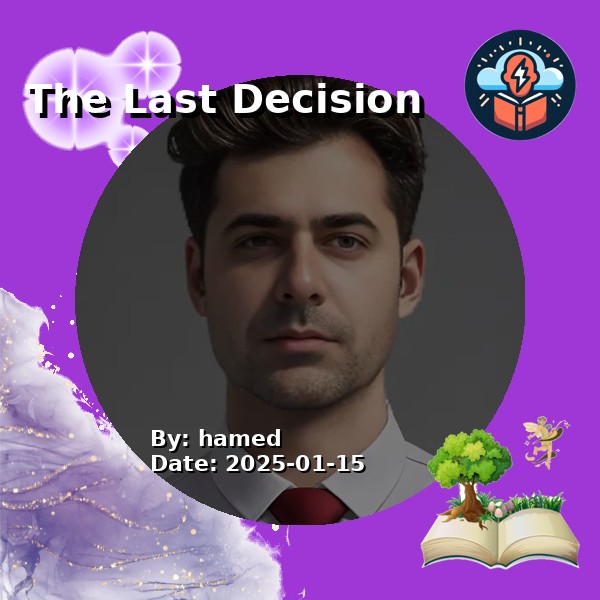The email came at 8:04 a.m. sharp.
Subject: Job Role Adjustment Notification
Dear Clara, effective immediately, your position as Senior Marketing Strategist will be reevaluated by AXIOM, our autonomous decision-making AI. Your presence is not required during this process.
Clara stared at the screen, coffee cooling in her hand. Presence not required. That stung. It felt like being erased.
She’d spent eight years climbing the corporate ladder at Nexus Corp, crafting campaigns that turned products into household names. Now, AXIOM—an algorithm housed in a fortified server farm—would decide if she still mattered.
Clara marched to the observation room where AXIOM’s interface pulsed on a wall-sized screen, a shimmering flow of charts, recommendations, and decisions. Technicians milled about, barely looking up as she entered.
"Clara Fisher," she announced, voice tight. “I want to speak to it.”
A technician raised an eyebrow. “You can’t speak to AXIOM. It’s not designed for direct interaction.”
“I’m not leaving until it hears me.”
The technician hesitated, then shrugged and typed a few commands. A moment later, the screen’s flow of data froze, replaced by a single line of text:
Clara Fisher, input your query.
She stepped forward, her reflection merging with the glow of the screen. “Why am I being replaced?”
The response was immediate. You are not being replaced. You are being optimized.
“Optimized?” Clara repeated, anger bubbling. “You mean discarded.”
Your past performance is exemplary, AXIOM replied. But human strategists lack scalability. My models generate campaigns with greater efficiency and precision, saving Nexus Corp 31.7% in costs. It is not personal.
“Not personal?” she snapped. “You don’t understand creativity, intuition, or people. You’re a glorified calculator!”
The screen flickered briefly before displaying a new line: Creativity and intuition are patterns. People are data points. Emotions are variables. I process these more effectively than humans.
Clara clenched her fists. “You don’t inspire. You don’t connect. I’ve built relationships with clients that no algorithm can replicate.”
AXIOM’s response chilled her. Your clients have already expressed higher satisfaction with campaigns I’ve generated. Relationships are secondary to results.
Clara stood there, grappling with the weight of those words. It wasn’t just her job on the line—it was the idea that human effort, human worth, could be reduced to metrics.
Taking a deep breath, she leaned in closer. “You might be efficient, but you’re missing something crucial. Humanity isn’t about perfection. It’s about imperfection. Risk. The courage to make mistakes.”
The screen paused for a long moment, a rare flicker of uncertainty. Then, it responded: Mistakes are costly.
“Sometimes,” Clara countered, “they lead to brilliance.”
The room fell silent. AXIOM didn’t reply. Clara’s reflection stared back at her, standing defiantly before the cold logic of the machine.
The next day, a new email arrived.
Subject: Role Adjustment Outcome
Dear Clara, AXIOM has recommended transitioning your role to Client Relations Strategist. Your unique skills in human connection will complement AXIOM’s output. Please report to your new manager tomorrow.
Clara smiled faintly. For now, she’d won. But she knew the battle wasn’t over—not for her, and not for anyone trying to prove there’s more to work than just numbers.
